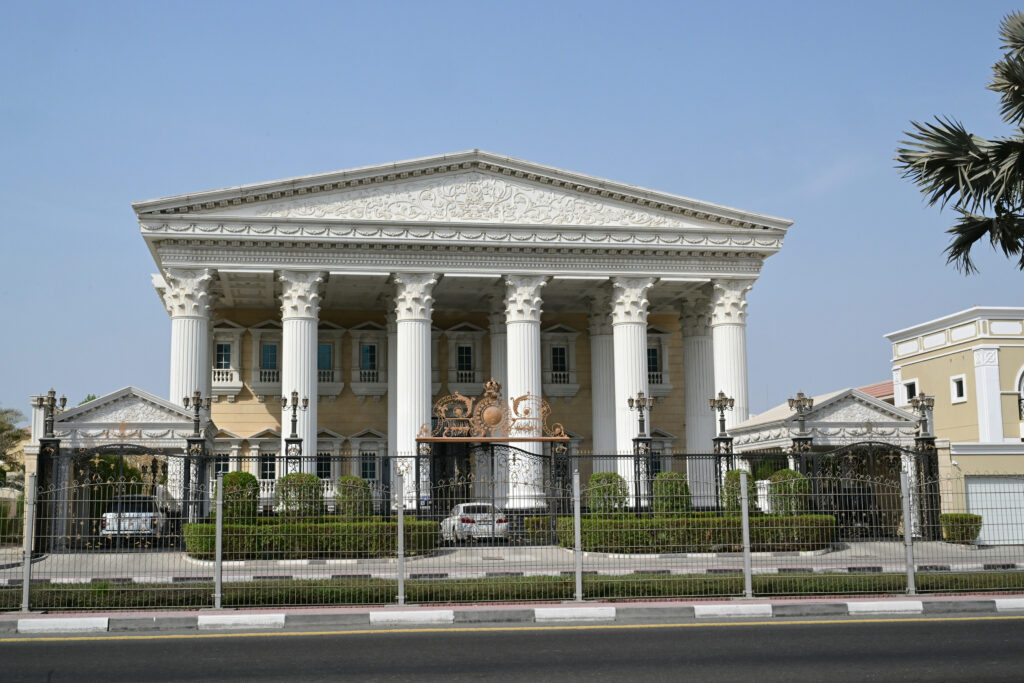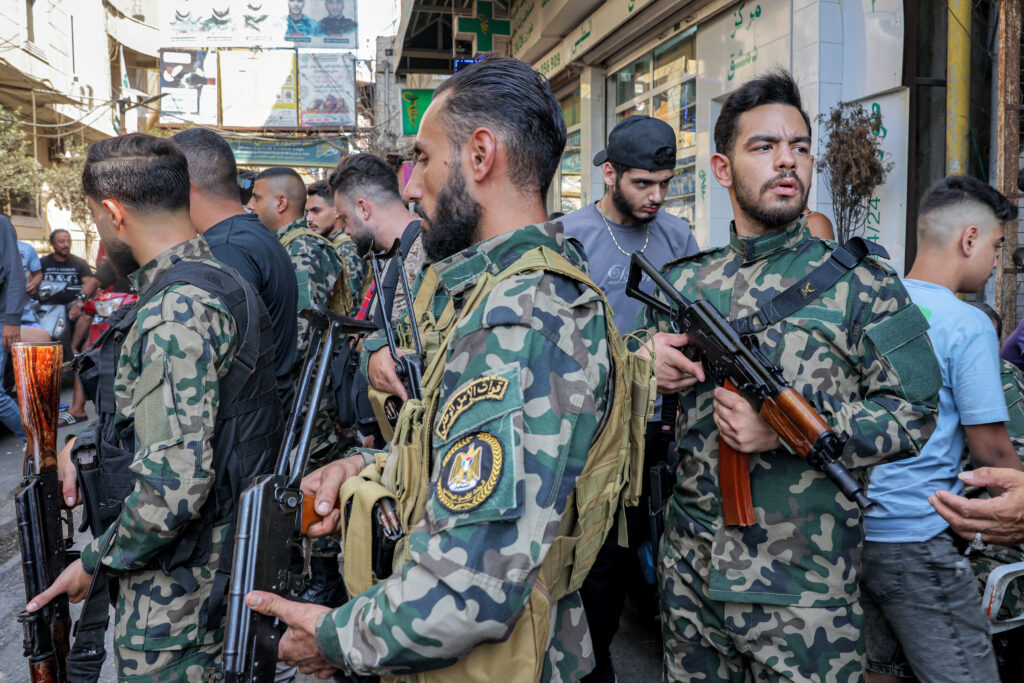AFP Asia Business
Nvidia chief says H20 chip shipments to China not a security concern
Shipping Nvidia’s H20 chips to China was “great” for Beijing and Washington and not a security threat, the tech giant’s chief said Friday. The California-based company produces some of the world’s most advanced semiconductors but cannot ship its most cutting-edge chips to China due to concerns from Washington that Beijing could use them to enhance …
Nvidia chief says H20 chip shipments to China not a security concern Read More »
Rice prices up 91 pct year-on-year in Japan
Rice prices in Japan soared 90.7 percent in July year-on-year, official data showed Friday, but the rate of increase slowed from previous months offering some relief for Prime Minister Shigeru Ishiba.Ishiba’s future is uncertain after his coalition lost its majority in both chambers in elections this year, as voters angry about rising prices deserted his …
Less tax, more luxury: millionaires flock to Dubai
Rich people are flocking to Dubai in record numbers, drawn to the desert city by its zero income tax policy and easy luxury lifestyle that has become harder to maintain elsewhere.The United Arab Emirates and particularly Dubai have long welcomed wealthy people from nearby countries, and people helping millionaires to move there told AFP it is seeing more Westerners joining the fray.Advisory firm Henley & Partners estimates that the UAE will attract an unprecedented 9,800 millionaires this year — more than anywhere else in the world.The tightly-policed UAE has moulded itself into a magnet for the wealthy, offering economic and political stability with extremely low crime rates, an easygoing business environment and even easier access to luxury. The Gulf state’s golden visa scheme, meant to attract wealthy or skilled foreigners, allows individuals to obtain a 10-year residence permit. Mike Coady, who heads Skybound Wealth Management, an advisory firm for high-net-worth individuals, said some of his clients “feel like success has become a liability in their home countries”.”They’re being taxed more, scrutinised more, and offered less,” he said, but in Dubai, “wealth isn’t hidden, it’s normalised”.”In London, my clients whisper about their net worth. In Dubai, they can live freely.”A top destination for flashy influencers, Dubai has become synonymous with over-the-top displays of wealth.It is home to an enormous mall with an indoor ski area, the world’s tallest building, and the Palm — an artificial island dotted with five-star hotels.The rapid development into a world-leading playground for the rich has been met with criticism over gross inequalities as armies of low-paid migrant workers form the backbone of the economy.- ‘Very little red tape’ -Coady said his relocating clients were mostly professionals in their 30s and 40s, including tech founders, second-generation business owners, consultants and fund managers.One of them is the 42-year-old founder of a cloud software company who, fearing capital gains tax on its sale, had moved to the UAE from Britain — now a leading exporter of millionaires.Some are pushed out by a stricter taxation policy for people with “non-dom” status — those who live in Britain but whose permanent domicile is abroad and had benefitted from no tax on income earned outside the country.Put together with other looming changes to taxation and inheritance rules, and what Coady called “increasing anti-wealth rhetoric”, Britain is expected to lose a record 16,500 millionaires this year, according to Henley & Partners.The most high-profile departee this year, billionaire John Fredriksen, told Norwegian media he was moving to the UAE because “Britain has gone to hell”.Speaking on the “Building Wealth With No Borders” podcast about his move to Dubai, Max Maxwell, CEO of Paddco Real Estate, said: “We’re all chasing a lifestyle, whatever that means to everybody.”The self-described “serial entrepreneur” explained that after leaving the United States for the UAE, he found his family could enjoy “a better lifestyle than where we were” for the same amount of money.Philippe Amarante, of Henley & Partners in Dubai, said the wealthy seek to maintain their fortunes and lifestyle, and the ability to do business with “very little red tape”.And the UAE has positioned itself “with a very clear and simple message: we are open for business”, said Amarante.To Coady’s clients, “the UAE fits like a glove,” he said.- ‘Buy a whole building’ -The inflow of rich foreigners has not been without controversy, however.Emirati authorities have cracked down on money laundering after the UAE was put on a global “grey list” in 2022 over concerns about murky financial transactions and a flood of Russian money, as wealthy Russians flocked to the Gulf after the Ukraine invasion to escape crippling sanctions at home.The UAE has also extradited some wanted individuals, including drug barons, reversing the grey listing.The wealthy from all over the world are now taking their families, businesses and private offices with them to Dubai, “which is something new”, said Faisal Durrani, head of Middle East research at Knight Frank real estate consultancy firm.Dubai is already one of the world’s top 20 cities with the most millionaires, home to 81,200 of them as well as 20 billionaires, according to Henley & Partners.Overtaking New York and London combined, 435 homes worth $10 million or more were sold in Dubai last year — making it the busiest market for high-end properties, relatively affordable in the UAE compared to the West, Durrani said.He said buyers from places such as Monaco and Switzerland would come to the company seeking a Dubai apartment for $100 million, for example.”But in Dubai, for that price, you could buy a whole building.”
Palestinian camps in Lebanon begin disarming
Some armed Palestinian groups in Lebanese refugee camps began handing over their weapons to the authorities on Thursday after reaching a deal earlier this year, with Washington hailing the move as a “historic step”.The efforts at disarmament came after the Lebanese government, under US pressure, tasked the army with formulating a plan to also disarm the militant group Hezbollah by the end of the year.The Lebanese army took into its custody a number of weapons in the Burj al-Barajneh refugee camp in Beirut’s southern suburbs.An AFP photographer saw a truck filled with weapons and ammunition transported from the camp to a nearby parking lot, where Lebanese army vehicles and personnel were deployed to inspect the cargo.”Today marks the beginning of the first phase of the process of handing over weapons from inside the Palestinian camps,” Lebanese-Palestinian Dialogue Committee chairman Ramez Dimashkieh had said in an earlier statement.US envoy Tom Barrack offered his congratulations on the development, saying it marked “a historic step toward unity and stability, showing true commitment to peace and cooperation”.Lebanese Prime Minister Nawaf Salam also welcomed the move, saying that the “process will be completed with the handover of additional batches in the coming weeks from Burj al-Barajneh and other camps”, according to a statement from his office.A Palestinian security official had told AFP on condition of anonymity that “Fatah will begin handing over its weapons in Burj al-Barajneh camp within the framework of the coordination with the Lebanese army”.Palestinian president Mahmud Abbas, who heads the Fatah movement, visited Beirut in May and reached an agreement with Lebanese President Joseph Aoun that all arms in Palestinian camps would be surrendered to the state.A Palestinian security source at Burj al-Barajneh camp said “Fatah’s initiative in beginning to hand over weapons is symbolic, and came as a result of an agreement between Aoun and the Palestinian president’s son, Yasser Abbas, who is currently visiting Beirut”.It aims to “encourage the remaining (Palestinian armed) factions to take the same step”, the source said, noting that the other influential factions in the camp “have not yet decided to hand over their weapons”.The Palestinian Authority does not exercise power over the other factions in the camps, most notably Hamas.- ‘Illegitimate weapons’ -Lebanon has come under heavy US pressure to disarm Hamas’s ally Hezbollah after the Iran-backed Lebanese movement was dealt a massive blow during its war with Israel last year.That conflict was the culmination of a year of hostilities launched by Hezbollah in support of Hamas after the Palestinian group’s October 2023 attack on Israel that sparked the Gaza war.Lebanon hosts about 222,000 Palestinian refugees, according to the United Nations agency UNRWA, with many living in overcrowded camps outside of the state’s control.The Ain al-Hilweh camp near the southern city of Sidon, for instance, is the largest in the country and houses individuals wanted by the Lebanese authorities.The handover of weapons had been expected to begin in mid-June, but in an interview with Saudi-owned broadcaster Al Arabiya last week, Aoun attributed the delay to the Iran-Israel war that broke out that month, as well as to “internal considerations within the Palestinian Authority”.Badie al-Habet, a member of the Fatah leadership in Beirut, told AFP that Thursday would see the “turning over of illegitimate weapons in the hands of illegitimate individuals”.The weapons held by Palestinian security personnel in the refugee camps, however, were not included in the handover, he added.Palestinian armed factions including Hamas have repeatedly fired at Israel from Lebanon since the start of the Gaza war and the ensuing conflict between Israel and Hezbollah, which a November ceasefire sought to end.The ceasefire stipulated that only the Lebanese military would bear arms and that all forces would withdraw from the country’s south, with the exception of the army and UN peacekeepers.Israel has nonetheless continued to strike Lebanon regularly, and its troops still hold five positions in the south that it deems strategic.Hezbollah, meanwhile, has said it will resist efforts to disarm it.




